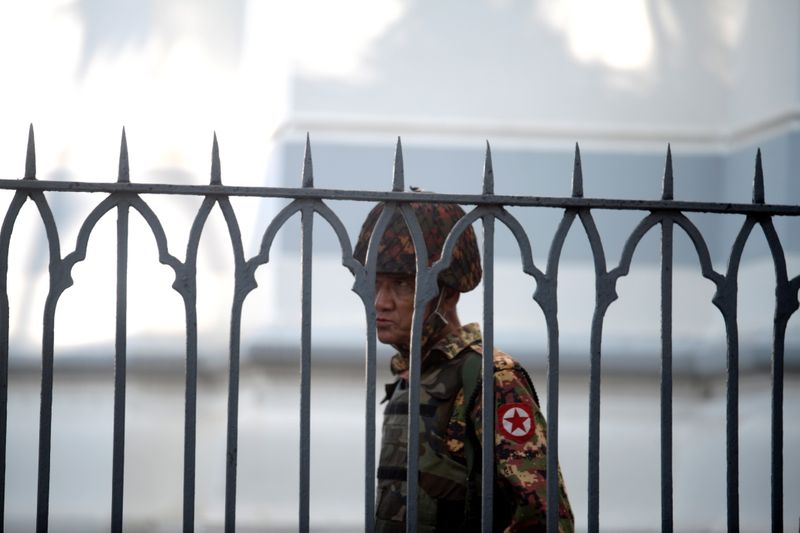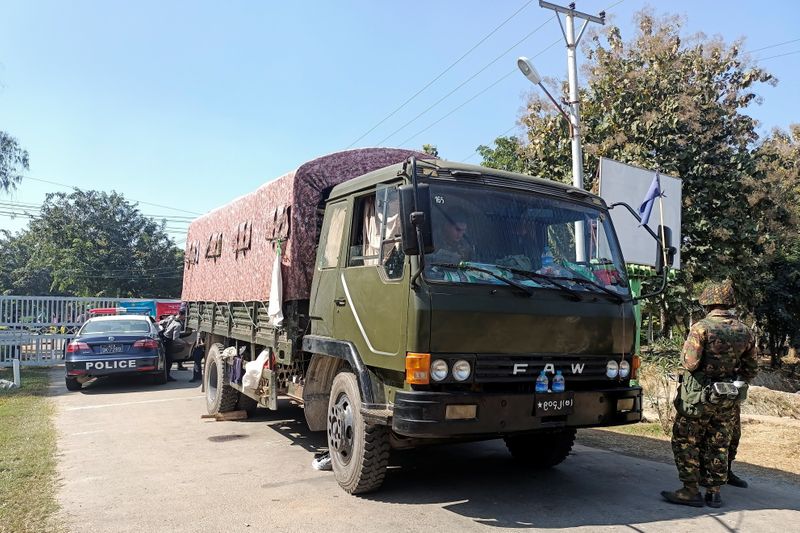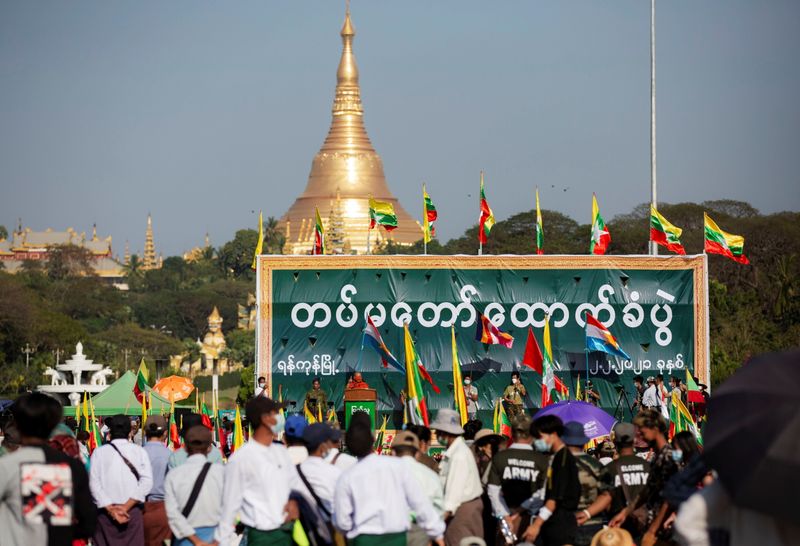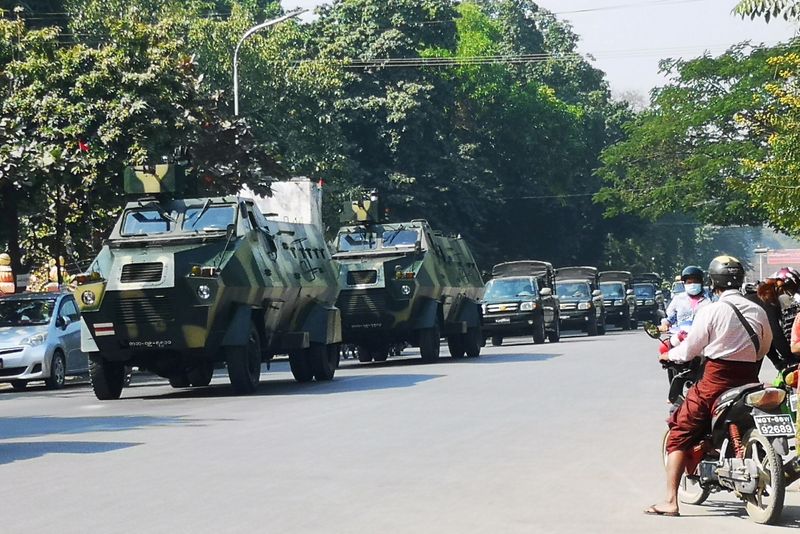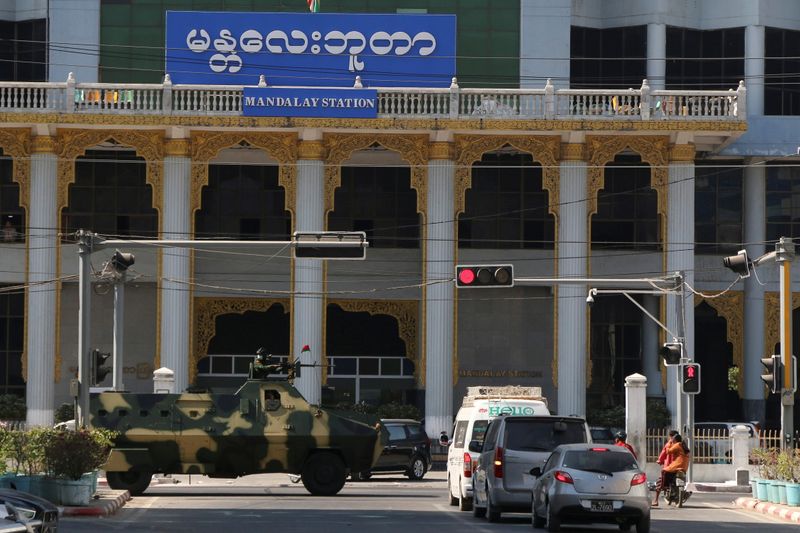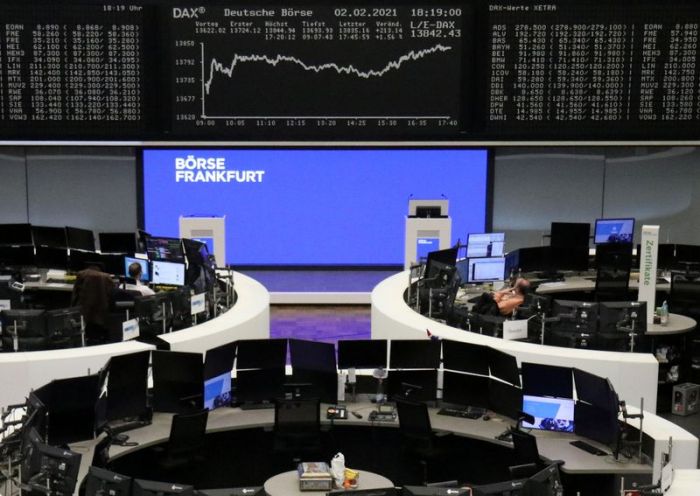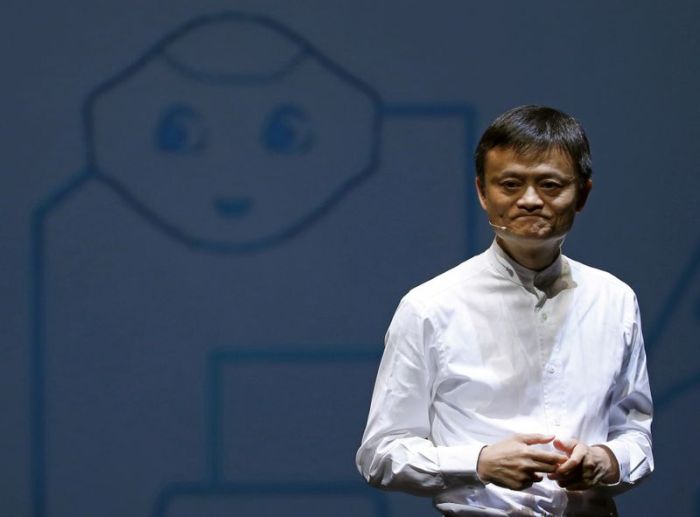(Reuters) – The din of banging pots and honking car horns reverberated through Myanmar’s biggest city of Yangon late on Tuesday in the first widespread protest against the military coup that overthrew elected leader Aung San Suu Kyi.
The party of the detained Nobel Peace laureate called for her release by the junta that seized power on Monday and is keeping her at an undisclosed location. It also demanded recognition of her victory in a November election.
A senior official from her National League for Democracy (NLD) said he had learned she was in good health a day after her arrest in a military takeover that derailed Myanmar’s tentative progress towards full democracy.
The U.N. Security Council was due to meet later on Tuesday amid calls for a strong global response to the military’s latest seizure of power in a country blighted for decades by army rule.
U.S. State Department officials said the takeover had been determined to constitute a coup d’etat, triggering restrictions in foreign assistance. Washington has threatened to reimpose sanctions on the generals who seized power.
In the biggest public display of anger so far, people in Yangon banged on pots and pans and honked car horns and chanted “evil be gone”.
“It is a Myanmar tradition to drive away evil or bad karma by beating tin or metal buckets,” said Yangon resident San Tint.
People have not taken to the streets so far in a country with a history of bloody repression of protests.
The coup followed a landslide win for Suu Kyi’s NLD in an election on Nov. 8, a result the military has refused to accept, citing unsubstantiated allegations of fraud.
The army handed power to its commander, General Min Aung Hlaing, and imposed a state of emergency for a year.
“INEVITABLE”
Min Aung Hlaing told the first meeting of his new government on Tuesday that it was inevitable the army would have to take power after its protests over the alleged election fraud last year were rejected.
The election and fighting COVID-19 were the junta’s priorities, he said. He had earlier promised a free and fair election and a handover of power to the winner, but without giving a timeframe.
The electoral commission has dismissed the fraud claims.
At the United Nations, the world body’s Myanmar envoy Christine Schraner Burgener told the Security Council that the military’s proposal to hold new elections should be discouraged.
“Let us be clear, the recent outcome of the election was a landslide victory for the National League for Democracy,” Schraner Burgener said, according to excerpts of her remarks seen by Reuters.
The NLD executive committee demanded the release of all detainees “as soon as possible”. It also called for the military to acknowledge the election results and for the new parliament to be allowed to sit, as it had been due to on Monday.
NLD official Kyi Toe said in a Facebook post that it was learned that Suu Kyi was “in good health” and would not be moved. An earlier post said she was at her home. Reuters was unable to contact him for more information.
Suu Kyi, 75, endured about 15 years of house arrest between 1989 and 2010 as she led a democracy movement against the military, which had seized power in a 1962 coup and stamped out all dissent until her party came to power in 2015.
Her international standing as a human rights icon was badly damaged over the expulsion of hundreds of thousands of ethnic Rohingya Muslims in 2017 and her defence of the military against accusations of genocide. But she remains hugely popular at home and is revered as the daughter of Myanmar’s independence hero, Aung San.
CIVIL DISOBEDIENCE
Activist groups issued a flurry of messages on social media urging civil disobedience. Doctors in more than 20 hospitals said they would join a civil disobedience campaign.
“We cannot accept dictators and an unelected government,” said Myo Thet Oo, one participating doctor, who said he would not go to his hospital on Wednesday.
U.S. President Joe Biden on Monday called the crisis a direct assault on Myanmar’s transition to democracy.
The U.S. State Department said it will conduct a review of its foreign assistance but will continue its humanitarian programs helping the Rohingya, senior officials said on Tuesday.
The United Nations has also condemned the coup and called for the release of detainees, in comments echoed by Australia, the European Union, India and Japan as well as former colonial ruler Britain.
China simply called on all sides to respect the constitution.
The coup marks the second time the military has refused to recognise a landslide election win for the NLD, having also rejected the result of 1990 polls that were meant to pave the way for multi-party government.
Following mass protests led by Buddhist monks in 2007, the generals set a course for compromise, while never relinquishing ultimate control.
The NLD came to power after the 2015 election under a constitution that guarantees the military a role in government, including several main ministries, and an effective veto on constitutional reform.
The new junta has made its own ministerial appointments. A new central bank chief was named late on Tuesday, reappointing Than Nyein, who had held the role from 2007 to 2013 under the previous junta.
(Reporting by Reuters staff; Writing by Stephen Coates, Robert Birsel, Matthew Tostevin; Editing by Angus MacSwan)

